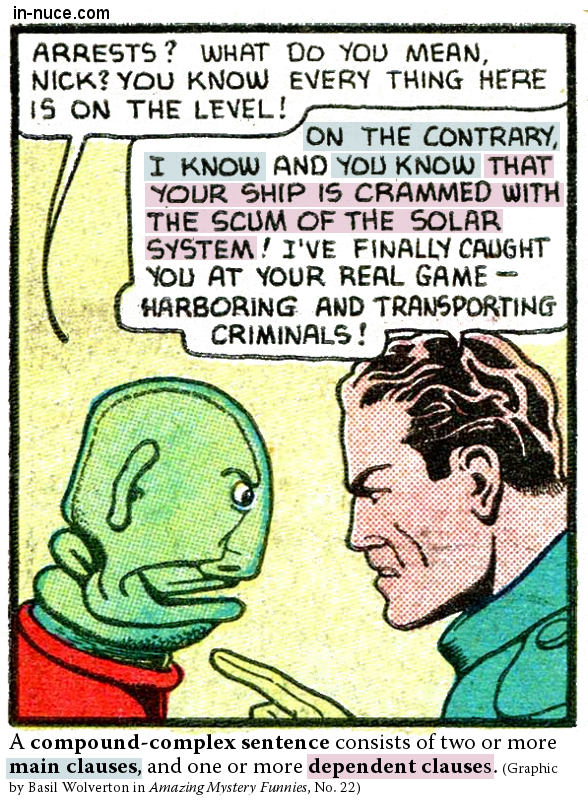Squawk trembled with rage and shook his fist
in a fit of anger.
The preposition and its object form a phrase.
A prepositional phrase begins with a preposition and ends with its object, which is always a noun or a pronoun
Prepositions show relationships
From A New English Grammar for Schools, by Thomas Harvey:
1. A prepositional phrase can relate as an adverb.
|___|
In this sentence the phrase “on the ocean” modifies “sail” by telling where the vessels sail.
The word “on”connects “ocean” with “sail,” and is said to show the relation between them.
2. A prepositional phrase can relate as an adjective.
We reached the summit of the mountain.
|___|
In this sentence the phrase “of the mountain” modifies “summit” by telling what kind of summit was reached.
The word “of”connects “mountain” with “summit,” and is said to show the relation between them.
3. A list of common prepositions:
aboard
|
among
|
between
|
in
|
over
|
underneath
|
about
|
around
|
beyond
|
inside
|
past
|
until
|
above
|
at
|
by
|
into
|
since
|
up
|
across
|
before
|
down
|
like
|
through
|
upon
|
after
|
behind
|
during
|
near
|
throughout
|
with
|
against
|
below
|
except
|
of
|
to
|
within
|
along
|
beneath
|
for
|
off
|
toward
|
without
|
amid
|
beside
|
from
|
on
|
under
|
4. A prepositional phrase is diagrammed like one word.
a. A life of prayer is a life of heaven.
c. The credulity that has faith in goodness is a sign of goodness.
d. The charities that sooth, and heal, and bless,
Are scattered at the feet of men like flowers.
Note: A prepositional phrase always begins with a preposition and ends with a noun or pronoun.
Exercise:
Point out the prepositions in the following sentences. Tell their objects and the phrases they introduce.
- The boy fell over a chair into a tub of water.
- I traveled from Boston to Cincinnati in my sophomore year.
- We rested by the roadside.
- He ran up the road toward the house of his friend.
- Walk with me in the garden.
- I went to the doctor for advice, but he was not at home.
Previous Harvey's A New English Grammar Next
#grammar #writing #English #ESL #language arts #education #home school #preposition #prepositional phrase #adjective #adverb #object












